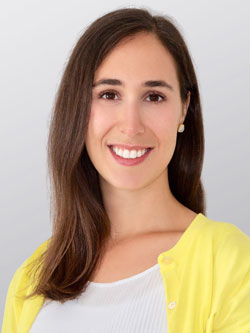Article
 Susan Schantz
Susan Schantz  Rita Strakovsky
Rita Strakovsky A team of researchers from Michigan State University and the Beckman Institute at the University of Illinois Urbana-Champaign have been awarded a five-year, $2.1 million grant from the National Institutes of Health. They will study the long-term effects of phthalate exposure on mothers four to seven years after giving birth. According to the U.S. Food and Drug Administration, phthalates are a class of chemicals that increase the durability and flexibility of many common plastic products, including food packaging materials. Phthalates also are used in personal care products as scent and color stabilizers.
In previous studies, phthalates have been shown to disrupt endocrine system function, which is responsible for the production of hormones that regulate growth, development, metabolism, and several other important physiological processes. The research will be led by Rita Strakovsky, an assistant professor of maternal nutrition and toxicology at MSU. The new project will expand on the Illinois Kids Development Study at the Children’s Health Environmental Research Center at the Beckman Institute. IKIDS is a large pregnancy cohort study that began at Illinois in 2014 and evaluates the effects of environmental chemical exposure on children’s development from birth to age 5. Susan Schantz, a professor emeritus of comparative biosciences and an environmental neurotoxicologist at the U of I, leads the IKIDS project. Strakovsky’s involvement with IKIDS began while she was a postdoctoral researcher at Illinois.
“Our research team is very excited about this opportunity to expand the IKIDS study to include the mothers of the children we are following,” Schantz said. “This new aspect of the study is called the Illinois Metabolic Outcomes in Moms Study or IMOMS, and will address a very important but under-studied question: ‘How do environmental exposures a mother experiences during pregnancy affect her own long-term health?’ ”
“Up to this point, we have been primarily concerned with endocrine disruptors and child development,” Strakovsky said. “We have been focusing on the developmental origins of health and disease, a concept that suggests a person’s health throughout life is heavily influenced by environmental exposures in utero and in early childhood."
“The question we have now is, what about the mother’s health? Estrogen and other reproductive hormones are important for women’s metabolic and cardiovascular health, so our goal is to understand the potential consequences of hormonal disruption.”
Roughly 350 mothers from IKIDS will be re-enrolled for the new project and will meet with researchers four to seven years after giving birth. Several health indicators will be evaluated, such as body composition, resting energy expenditure, blood pressure, levels of reproductive hormones, and levels of various blood markers of metabolic and cardiovascular health. The mothers also will be surveyed on topics such as sleep habits, diet, physical activity, emotional state, socioeconomic status, and stress level.
“We know that pregnancy has important implications for women’s long-term metabolic and cardiovascular health,” Strakovsky said. “What we want to determine now is whether exposures to endocrine-disrupting chemicals during pregnancy adds another layer of complexity for women postpartum, such as the inability to lose weight after pregnancy or additional postpartum weight gain, high blood pressure, high cholesterol, or any number of other health-related issues.”
Due to the novel coronavirus pandemic, mothers cannot be contacted for in-person meetings currently, but Strakovsky hopes that will change. “It’s critical for us to get these measurements, and some of the mothers are already reaching their eligibility window,” she said. “But safety for everyone is our first priority, so we’ll adjust accordingly.
Editor’s Note: This story was adapted from one written by Cameron Rudolph, communications manager for the College of Agriculture and Natural Resources at Michigan State University. The original story can be found online.
Beckman Institute for Advanced Science and Technology